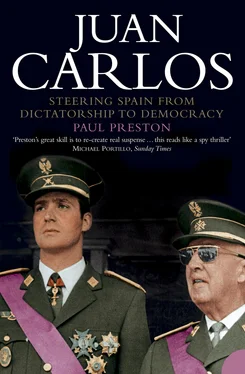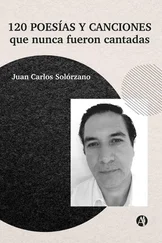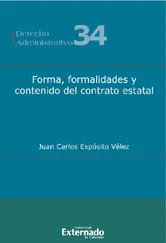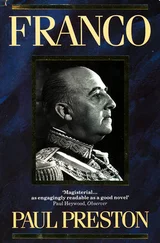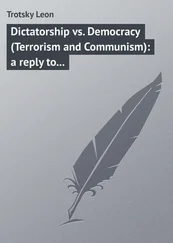When Don Juan did finally reply to Franco’s letter, in March 1943, his tone was altogether more confrontational than before. He questioned Franco’s exercise of absolute power without institutional or juridical basis and expressed alarm at both the continued divisions within Spain and the international situation. He firmly informed Franco that it was his patriotic duty to: ‘abandon the current transitory and one-man regime in order to establish once and for all the system which, according to Your Excellency’s oft-repeated phrase, forged the greatness of our fatherland’. He bluntly stated that he found entirely unacceptable Franco’s vague formula of delaying the return of the monarchy until his work was done. Then, in terms that can only have horrified Franco, Don Juan roundly rejected the Caudillo’s call for him to identify with the Falange, asserting that any link with a specific ideology ‘would mean the outright denial of the very essence of the value of monarchy which is radically opposed to the provocation of partisan divisions and domination by political cliques and is rather the highest expression of the interests of the entire nation and the supreme arbiter of the antagonistic tensions inevitable in any society’.
In his letter, Don Juan outlined the formula for the eventual restoration of a democratic monarchy in Spain on the basis of national reconciliation – although he cannot have imagined that it would take a further 32 years. Recalling Alfonso XIII’s declaration in 1931 that he was ‘ Rey de todos los españoles ’ (King of all Spaniards), Don Juan presented Franco with a slap in the face for which he would never be forgiven: ‘In fact, my arrival on the throne after a cruel civil war should, in contrast, appear to all Spaniards – and this is precisely the transcendental service that the monarchy, and only the monarchy, can offer them – not as an opportunist government of a particular historical moment or of exclusive and changing ideologies, but rather as the sublime symbol of a permanent national reality and the guarantee of the reconstruction, on the basis of harmony, of Spain, complete and eternal.’ 45
Franco’s outrage can be discerned both in the unaccustomed (for him) rapidity (19 days) in which he replied and in the unconcealed contempt of his tone. ‘Others might speak to you in the submissive tone imposed by their dynastic fervour or their ambitions as courtiers; but I, when I write to you, can do so only as the Head of State of the Spanish nation addressing the Pretender to the throne.’ He went on, condescendingly, to attribute Don Juan’s position to his ignorance and to lay before him a petulant list of what he regarded as his own achievements. 46
In the wake of Allied success in expelling Axis forces from North Africa in June 1943, Don Juan remained on the offensive. He could draw confidence from the fact that monarchists within the regime were beginning to fear for their own futures. At the end of the month, a group of 27 senior Procuradores (parliamentary deputies) from Franco’s pseudo-parliament, the Cortes, appealed to the Caudillo to settle the constitutional question by re-establishing the traditional Spanish Catholic monarchy before the War ended in an inevitable Allied victory. They believed that only the monarchy could avoid Allied retribution for Franco’s pro-Axis stance throughout the War. The signatories came from right across the Francoist spectrum, with representatives from the banks, the Armed Forces, monarchists and even Falangists. The Caudillo reacted swiftly. Even before the manifesto was published, he had ordered the arrest of the Marqués de la Eliseda who was collecting the signatures. As soon as it was published, showing how very little he was interested in his much-vaunted contraste de pareceres (contrast of opinions – his substitute for democratic politics), he dismissed all the signatories from their seats in the Cortes immediately and sacked the five of them who were also members of the Movimiento’s supreme consultative body, the Consejo Nacional . 47
The Caudillo’s sense of being under siege by Don Juan was intensified by the fall of Mussolini on 25 July 1943. Don Juan sent Franco a telegram recommending the restoration of the monarchy as his only chance to avoid the fate of the Duce. It embittered even further the tension between the two. Thereafter, Don Juan believed that Franco never forgave him: ‘he always had it in for me after that telegram.’ It was a bizarre measure of Franco’s self-regard that he regarded Don Juan’s action as high treason. 48 Mortified, but aware of his own vulnerability, he shelved his resentment for a better moment. Instead, Franco replied with an appeal to Don Juan’s patriotism, begging him not to make any public statement that might weaken the regime. 49 The Caudillo had every reason to be worried – his senior generals were swinging more openly behind the cause of Don Juan. Pedro Sainz Rodríguez was informed that a number of them were ready to rise to restore the monarchy, provided that immediate Allied recognition could be arranged by Don Juan. The Caudillo’s anxiety – and his resentment of Don Juan – was exacerbated when he discovered in the late summer that the generals were conspiring. Prompted by Don Juan’s senior representative in Spain, his cousin Prince Alfonso de Orleans Borbón, they met in Seville on 8 September 1943 to discuss the situation and composed a document calling upon Franco to take action to bring back the monarchy. 50
Signed by eight Lieutenant-Generals, Kindelán, Varela, Orgaz, Ponte, Dávila, Solchaga, Saliquet and Monasterio, the letter was handed to the Caudillo by General Varela at El Pardo (Franco’s official residence just outside of Madrid) on 15 September. In fact, the Caudillo had already been alerted to its contents by a member of Don Juan’s Privy Council, Rafael Calvo Serer. Calvo Serer was a talented, if somewhat erratic, young intellectual, and a convinced monarchist, but he was also a high-ranking member of the Opus Dei. He had insinuated himself into the inner circle of Alfonso de Orleáns Borbón and when he got hold of the draft, hastened to Franco’s summer residence, the Pazo de Meirás in Galicia. In fact, respectfully couched – ‘written in terms of vile adulation’ according to one of Don Juan’s principal advisers, the exiled José María Gil Robles – the letter was more annoying than threatening to Franco. However, it did nothing to improve his attitude to Don Juan. 51
At the end of 1943, Don Juan wrote a letter to one of his most prominent followers, the Conde de Fontanar. The inflammatory text referred to Franco as an ‘illegitimate usurper’ and called upon Fontanar to break publicly with the regime. The letter fell into Franco’s hands. Don Juan had chosen as his intermediary the sleekly ambitious Rafael Calvo Serer. Later Don Juan came to believe erroneously that the letter had been given by Calvo Serer to his spiritual adviser, Padre Josemaría Escrivá de Balaguer, the Aragonese priest and founder of the Opus Dei, who had then handed it to Franco. It has also been alleged that the letter was actually given by Calvo Serer to Franco’s cabinet secretary and a key adviser, Captain Luis Carrero Blanco, with the request that its ‘interception’ be attributed to the dictatorship’s intelligence services. However, the allegation remains unproved. 52
The Caudillo responded to Don Juan with disdain. After a feeble lie about the letter falling into the hands of an enemy agent ‘from whom we were able to retrieve it’, he went on to patronize the Conde de Barcelona in imperious terms. He asserted that his own right to rule Spain was infinitely superior to that of Juan III: ‘among the rights that underlie sovereign authority are the rights of occupation and conquest, not to mention that which is engendered by saving an entire society.’ To devalue Don Juan’s claims, Franco stated that the military uprising of 1936 was not specifically monarchist, but more generally ‘Spanish and Catholic’ and that his regime therefore had no obligation to restore the monarchy. This sat ill with his own published justification for preventing Don Juan serving on the Nationalist side in 1937. In further defence of his legitimacy, he cited his own merits, accumulated during a life of sacrifice, his prestige among all sectors of society and public acceptance of his authority. He went on to state that Don Juan’s actions constituted the real illegitimacy because they were impeding the monarchical restoration to which the Caudillo ostensibly aspired. Franco ended by recommending that Don Juan leave him, without any time limit, to his self-appointed task of preparing the ground for an eventual restoration.
Читать дальше
